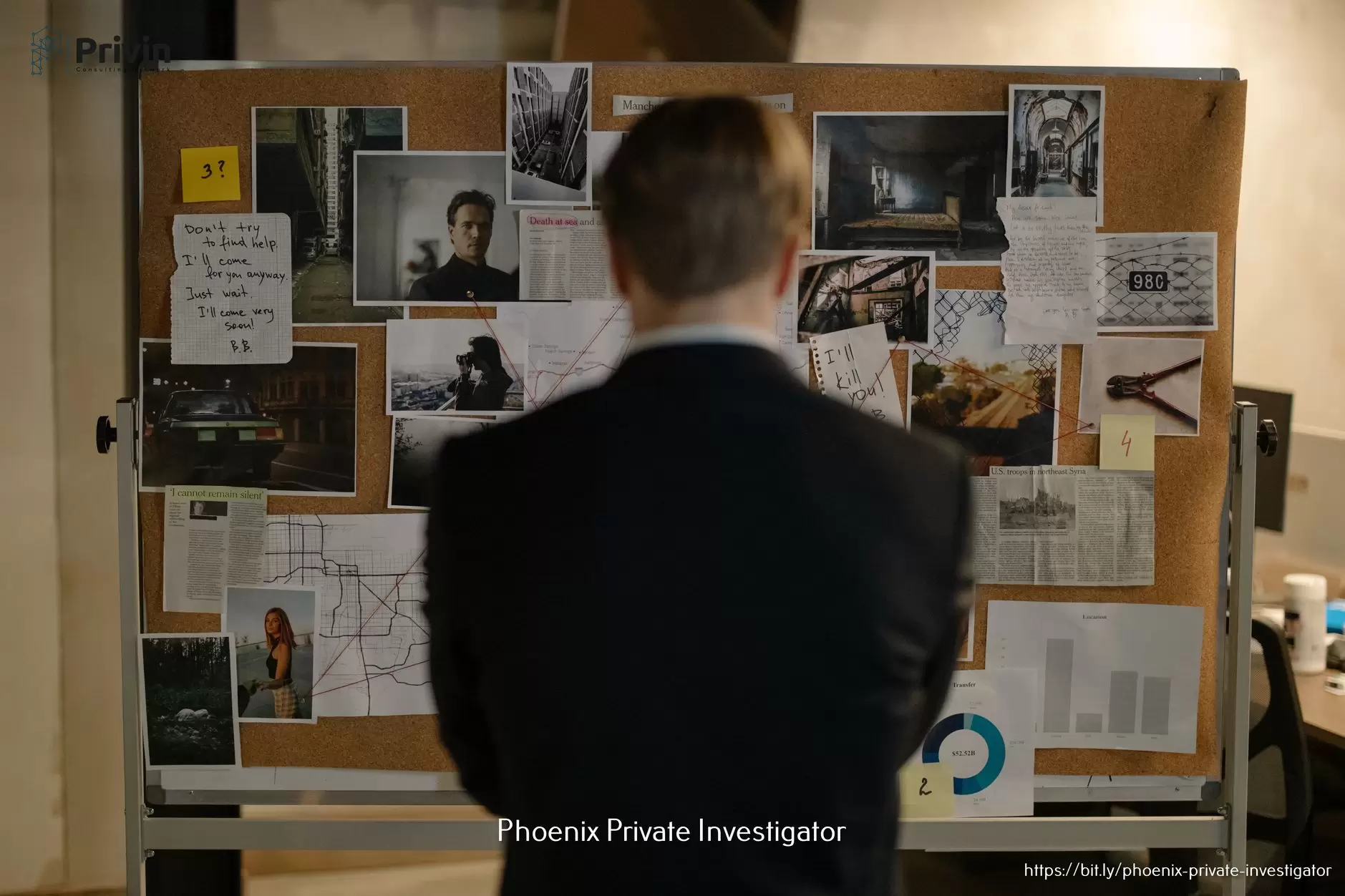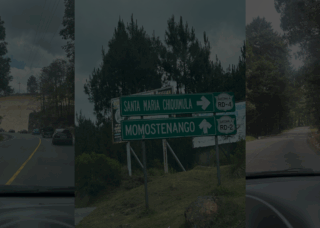Private investigators are skilled professionals who gather information, conduct surveillance, and provide insights that can be crucial in personal and business matters. However, their actions are governed by strict legal boundaries that ensure privacy and ethical standards are upheld. Knowing what a private investigator can and cannot do helps clients set realistic expectations and understand the investigator’s role in a lawful investigation.In this article, we would broadly discuss the investigators’ responsibilities, what they can and cannot do, and more.
For a detailed understanding of what private investigators do and the services they offer, refer to our detailed guide on Private Investigation.
Things a Private Investigator Can Do
1) Conduct Surveillance
PIs may use cameras, binoculars, and other observation tools to document activities. However, they cannot use intrusive methods like recording private conversations without consent in states that require it.
Private investigators can legally conduct surveillance in public places where there is no expectation of privacy. This can include monitoring a subject’s activities, locations they frequent, or people they meet. Surveillance is often used to gather evidence in cases of infidelity, fraud, or workplace misconduct.

2) Background Checks and Public Records Searches
Private investigators can legally access public records, including criminal records, property records, marriage and divorce records, litigation history, and financial filings. This helps them compile background checks or verify information about individuals or businesses. Background investigations are used in cases of pre-employment screening, tenant verification, and business partnerships to identify any red flags or criminal history.
3) Interviewing Witnesses and Sources
PIs can interview people, such as friends, family, colleagues, or witnesses, to gather information about a case. These interviews can help establish timelines, alibis, or details that are relevant to the investigation.
Investigators often use discreet and professional techniques to obtain information without revealing the nature of their work.
4) Collaborate with Law Enforcement
While PIs are not police officers, they may cooperate with law enforcement if their investigations uncover evidence of criminal activity. PIs can provide reports, surveillance footage, and other documentation to help police in criminal cases.
What a Private Investigator Cannot Do
1) Enter Private Property Without Consent
Private investigators cannot enter someone’s home, office, or property without explicit permission from the owner. Trespassing laws are strict, and violating them could lead to legal consequences for both the PI and the client.
2) Hacking and Unauthorized Access
PIs cannot hack into email accounts, social media profiles, or other private digital spaces to gather information. Doing so is illegal and a violation of privacy laws. Investigators can view publicly available information, like social media profiles that aren’t set to private, but they cannot bypass security or use hacking techniques.

3) Use of GPS Tracking without Permission
In most regions, private investigators need explicit consent to use GPS tracking devices on a subject’s vehicle. Unauthorized GPS tracking is considered a privacy violation. For more on this, read our guide on whether you can put a put put GPS device on a vehicle or not.
4) Recording Phone Conversations without Consent
Many states require at least one party to consent to a recorded conversation, while others require both parties to be aware. PIs must follow these rules strictly to avoid legal consequences.
Depending on the state, PIs may be allowed to record conversations if they are a participant (one-party consent) or if both parties consent (two-party consent). It’s critical for PIs to be familiar with consent laws in the area they operate.
5) Taking Photos Through Windows or on Private Property
Private investigators are not permitted to take photos through the windows of someone’s home or on private property. This would be considered an invasion of privacy and could lead to legal issues. PIs can only photograph what is visible from public areas, like a driveway or yard, without intruding on the privacy of the subject.
6) Access Confidential Information without Consent
PIs cannot access confidential information, such as bank account balances, transaction records, or private medical records, without permission. Investigators use public databases and cannot access confidential data unless given explicit authorization.
Frequently Asked Questions (FAQs)
1. What qualifications do private investigators need?
Private Investigators are different from detectives, however, in most states, private investigators must have a high school diploma, a license, and undergo specific training. Additional experience in law enforcement or the military can be beneficial, and many PIs complete criminal justice certifications.
2. Are private investigators allowed to access confidential information?
No, PIs are restricted to public records unless they have the subject’s consent to access confidential information. Unauthorized access to confidential data, like financial records, is illegal.

3. Can a private investigator use GPS tracking?
Private investigators can only use GPS tracking with consent or in compliance with local laws. Unauthorized GPS tracking is illegal.
4. Do private investigators have badges?
No, PIs are not law enforcement and do not carry badges or uniforms. This distinguishes them from police officers and helps set realistic expectations for clients.
5. Can private investigators hack into social media accounts or emails?
No, hacking into private accounts is illegal. PIs must abide by privacy laws, accessing only publicly available information. Unauthorized access to digital accounts is prohibited.
6. How do private investigators assist law enforcement?
PIs can collaborate with law enforcement by providing evidence they’ve legally obtained. While they cannot make arrests, they can be a valuable resource in investigations.
7. Can private investigators gather evidence admissible in court?
Yes, PIs are trained to collect evidence legally, ensuring it is admissible in court. This includes surveillance footage, photographs, and documented observations that can support legal cases.
8. What are the risks of hiring a private investigator?
While PIs provide valuable services, hiring an unlicensed or inexperienced PI can lead to privacy breaches, legal repercussions, or unreliable evidence. Always verify a PI’s license and track record to mitigate these risks. Learn more about how to hire the right private investigator in our detailed guide.
9. How do Private investigators work?
Private investigators use a variety of methods to gather information about a subject’s business, property, frequent locations, personal contacts, and more. They may collect details such as marital status, potential hidden relationships or assets, family background, criminal and litigation history, social media activities, business dealings, and connections with friends or neighbors. For a comprehensive look at our guide on what to expect during an investigation.
PIs access public databases like voter lists, criminal records, marriage records, and licenses. They may also interview individuals close to the subject, such as friends, relatives, colleagues, and neighbors, to gain insight into the subject’s behavior or character. After completing a thorough investigation, the PI compiles the findings into a detailed report, which can be provided to the client, a business entity, an attorney, a detective agency, or even law enforcement.
Conclusion
By now, you are familiar with what a private investigator can and cannot do when investigating an individual or a business entity. A licensed private investigator knows exactly what they can and not do. They ensure they collect relevant information legally to help build a strong case against the accused and that their evidence will be valid in court. The information must be legitimate, and the investigation process must follow the location-specific private investigation related laws, rules, and regulations. If you have any more questions call us today for a free consultation or schedule an appointment with us by calling us at 1(855)577-4846. Our team at Privin Network is equipped to help. We have the experience, background, and expertise to handle your case with the utmost sensitivity and attention to detail. For details about how we can help you, please visit our Services Page or Contact us today to get started.






